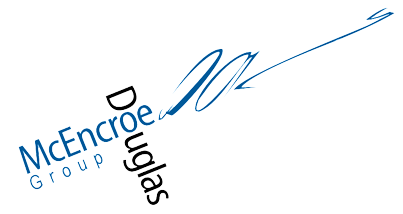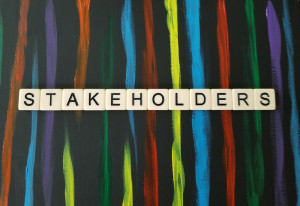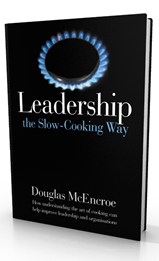 I must admit to being disillusioned with the press today. The difficulty to be financially viable has made the newspapers abandon the rigor they once honoured. So often, what you read is not based on fact, nor reflects a writer who values truth. It seems that few journalists invest the time to check the veracity of their sources. Social media is, of course, even worse.
I must admit to being disillusioned with the press today. The difficulty to be financially viable has made the newspapers abandon the rigor they once honoured. So often, what you read is not based on fact, nor reflects a writer who values truth. It seems that few journalists invest the time to check the veracity of their sources. Social media is, of course, even worse.
The manipulation of information
And so my search to be informed and to understand, as best I can, the reality in which we live, has led me to pursue other sources. The study of history is always useful as good historians still practise their craft with dedication and rigor basing their interpretation on original documents and being open to participate in debate with other historians who often have a different interpretation of what happened.
Another source is interviews with a very diverse set of people who share their real life experiences. I confess to being a fan of Richard Fidler’s “Conversations” which gives you access to people who you would probably never get to meet. At the end of last year, he talked to futurist Mark Pesce who is one of the pioneers of virtual reality on the web. The conversation centred on how social media, particularly Facebook, is using algorithms to manipulate the information people read in their news feed and the advertisements they are targeted with. The net result is a grouping of people who share common views thus amplifying their biases. These algorithms assure that all the news and all the opinion pieces that they read come from people who think like them. This is great for business because people love reading things that make them feel they are right. However, far from a debate between two learned historians who explore different interpretations of real events based on historical facts and original documents, people on Internet are grouped together with like minded individuals and fed news that often has little connection to the facts.
I find this an extremely worrying trend, for the hope of Internet was to have people well informed so that they could form their own opinions independently of the manipulation of the media. In contrast, what is happening is the creation of tribes who are ever less open to exploring other points of view or even investigating what actually happened in any given situation. And the worse thing is that they are not even aware of it.
Tribalism in organisations
Also in organisations, like minded people get together and amplify their biases. It can be people at the same hierarchical level, it can be departments or business units or it can be people from different companies that came together in a merger. The point is that if people only exchange views with people from their own group, then they don’t get together and listen to other people with different perspectives, different information and different interpretations. It is precisely this interaction between people with diverse experiences that a more robust thinking can prosper. The pursuit of truth and the search for new ways forward are fundamental for an organisation’s well being.
JFK said it rather eloquently some fifty-six years ago at the Commencement Address at Yale University:
“The great enemy of truth is very often not the lie – deliberate, contrived and dishonest – but the myth – persistent, persuasive and unrealistic. Too often we hold fast to the clichés of our forebears. We subject all facts to a prefabricated set of interpretations. We enjoy the comfort of opinion without the discomfort of thought”.
Tips for leaders to battle group-think
Leaders need to encourage the discomfort of thought, both at an individual, group and even corporate level.
Far from using algorithms like Facebook that indulge peoples’ desire to communicate with people who think like them, leaders need to bring people with diverse perspectives together and facilitate a process in which different groups can share information and interpretations in pursuit of a more complete picture that reflects the complexity of reality.
When forming an opinion, ask yourself:
- Where did my information come from?
- How do I know if it is true?
- What facts is it based on?
- What motivations lie behind it?
Explore other peoples’ worlds, be curious to know about their challenges, interests and their perspectives.
A healthy organisation values different inputs and understands that reality today is enormously complex.
 It seems today that everyone has a narrative. It is more than an approach or a general philosophy, it is a line of argument that leads to a given conclusion that does greatly change over time.
It seems today that everyone has a narrative. It is more than an approach or a general philosophy, it is a line of argument that leads to a given conclusion that does greatly change over time.

 My clients often ask me; how do we change our culture? The main reason for this is that with a new strategy coming in, some things become less important while others actually get in the way of the strategy being implemented.
My clients often ask me; how do we change our culture? The main reason for this is that with a new strategy coming in, some things become less important while others actually get in the way of the strategy being implemented. I am reading a biography of John Adams, a leading figure during the American war of Independence, one of the authors of the Declaration of Independence and the second president of the United States.
I am reading a biography of John Adams, a leading figure during the American war of Independence, one of the authors of the Declaration of Independence and the second president of the United States. About a week ago American social psychologist and Professor of ethical Leadership at New York University,
About a week ago American social psychologist and Professor of ethical Leadership at New York University,  Yesterday, while working out at the gym, I got into an interesting conversation with the owner who, as well as the gym, has a great practice as a personal trainer and as a health consultant to a lot of corporations.
Yesterday, while working out at the gym, I got into an interesting conversation with the owner who, as well as the gym, has a great practice as a personal trainer and as a health consultant to a lot of corporations. One of the hardest things in coaching, or indeed in consultancy, is getting people to the stuff that can really make a difference. So often a coachee, or even a senior management team, will beat around the bush with stories about their problems, about other people or about their competition.
One of the hardest things in coaching, or indeed in consultancy, is getting people to the stuff that can really make a difference. So often a coachee, or even a senior management team, will beat around the bush with stories about their problems, about other people or about their competition. Knowing how to manage your time seems like a skill that only junior managers would need to learn how to master. And yet, again and again I work with senior clients who are spending too much time on activities that are not creating long term value.
Knowing how to manage your time seems like a skill that only junior managers would need to learn how to master. And yet, again and again I work with senior clients who are spending too much time on activities that are not creating long term value. In today’s organisations most of leadership is not exercised through hierarchical structures but rather through a complex network of relationships. Results are obtained by getting a diverse group of people to collaborate with you.
In today’s organisations most of leadership is not exercised through hierarchical structures but rather through a complex network of relationships. Results are obtained by getting a diverse group of people to collaborate with you. Two weeks ago, the Labor Party lost the Australian elections. The polls got it wrong, as did many of the Labor politicians and their voters who expected a clear victory. No doubt the party had been brave in the clear transmission of their policies, but it would seem that they misjudged the nature of the Australian electorate at this point in time.
Two weeks ago, the Labor Party lost the Australian elections. The polls got it wrong, as did many of the Labor politicians and their voters who expected a clear victory. No doubt the party had been brave in the clear transmission of their policies, but it would seem that they misjudged the nature of the Australian electorate at this point in time. I must admit to being disillusioned with the press today. The difficulty to be financially viable has made the newspapers abandon the rigor they once honoured. So often, what you read is not based on fact, nor reflects a writer who values truth. It seems that few journalists invest the time to check the veracity of their sources. Social media is, of course, even worse.
I must admit to being disillusioned with the press today. The difficulty to be financially viable has made the newspapers abandon the rigor they once honoured. So often, what you read is not based on fact, nor reflects a writer who values truth. It seems that few journalists invest the time to check the veracity of their sources. Social media is, of course, even worse.

